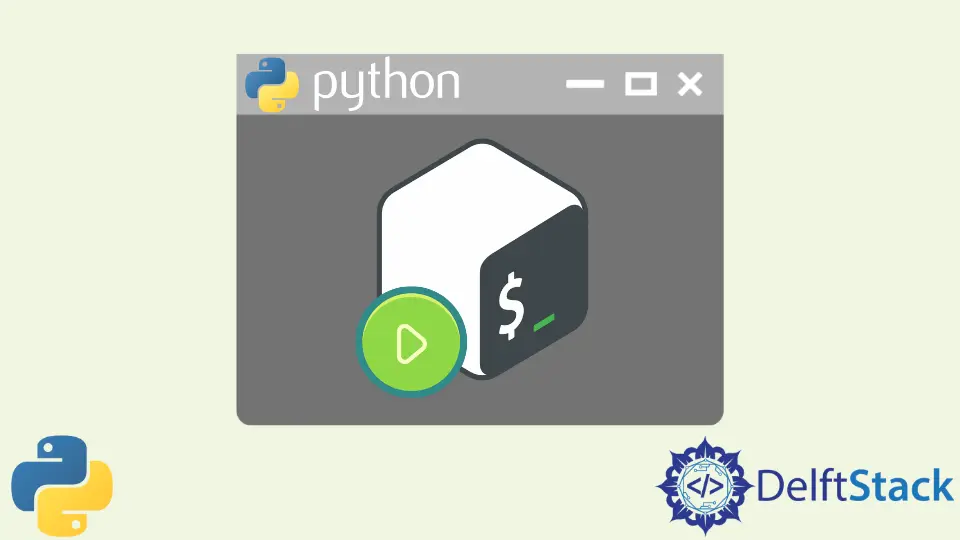How to Run Bash Command in Python
- Method 1: Using the subprocess Module
- Method 2: Using os.system
- Method 3: Using subprocess.Popen for More Control
- Conclusion
- FAQ

Running bash commands in Python can be incredibly useful, especially for developers who want to automate tasks that involve shell commands. Whether you’re managing files, executing scripts, or interacting with version control systems like Git, integrating bash commands into your Python scripts can streamline your workflow.
In this tutorial, we will explore various methods to run bash commands directly from Python. By the end of this guide, you will have a solid understanding of how to execute Git commands in Python and the benefits of doing so. Let’s dive in!
Method 1: Using the subprocess Module
The subprocess module is the most common way to run bash commands in Python. It provides a powerful interface for spawning new processes, connecting to their input/output/error pipes, and obtaining their return codes. This method is particularly effective when you want to run Git commands and capture their output for further processing.
Here’s a simple example that demonstrates how to use the subprocess module to run a Git command:
import subprocess
result = subprocess.run(['git', 'status'], capture_output=True, text=True)
print(result.stdout)
Output:
On branch main
Your branch is up to date with 'origin/main'.
nothing to commit, working tree clean
This code snippet runs the git status command, which checks the status of the working directory and the staging area. The subprocess.run function takes a list of arguments, where the first element is the command and the subsequent elements are its arguments. By setting capture_output=True, you can capture the output of the command. The text=True argument ensures that the output is returned as a string instead of bytes.
Using the subprocess module is advantageous because it allows for error handling. You can check the return code of the command with result.returncode to determine if the command executed successfully. If you want to run more complex Git commands, you can easily modify the arguments list.
Method 2: Using os.system
Another method to execute bash commands in Python is by using the os.system function. While this method is simpler, it has some limitations compared to subprocess. It is generally used for commands that do not require capturing output. However, if you simply want to execute a Git command without needing its output, this can be a straightforward solution.
Here’s how you can use os.system to run a Git command:
import os
os.system('git commit -m "Initial commit"')
Output:
[main (root-commit) 1234567] Initial commit
1 file changed, 1 insertion(+), 0 deletions(-)
create mode 100644 example.txt
In this example, the os.system function executes the git commit command with a specified commit message. This command will create a new commit in your Git repository. Unlike the subprocess module, os.system does not allow you to capture the output directly; it will print the output to the console.
While os.system is easier to use for quick tasks, it lacks the flexibility and error handling capabilities of the subprocess module. It is best suited for simple commands where output is not a concern.
Method 3: Using subprocess.Popen for More Control
If you need more control over the command execution, subprocess.Popen is a great option. This method allows you to spawn a new process and interact with it more flexibly. You can read from and write to the process’s input and output streams, making it ideal for more complex interactions with Git commands.
Here’s an example of how to use subprocess.Popen to run a Git command:
import subprocess
process = subprocess.Popen(['git', 'log'], stdout=subprocess.PIPE, stderr=subprocess.PIPE, text=True)
stdout, stderr = process.communicate()
print(stdout)
Output:
commit 1234567890abcdef1234567890abcdef12345678
Author: Your Name <your.email@example.com>
Date: Mon Oct 23 10:00:00 2023 -0700
Initial commit
In this code, subprocess.Popen is used to execute the git log command, which displays the commit history. The stdout and stderr parameters allow you to capture the standard output and error streams. The communicate() method reads the output and waits for the command to complete.
Using subprocess.Popen provides more flexibility, such as the ability to handle large outputs or interact with the process while it runs. This method is particularly useful for commands that may generate a lot of output or require real-time interaction.
Conclusion
In this tutorial, we explored several methods to run bash commands in Python, focusing on Git commands. We covered the subprocess module, os.system, and subprocess.Popen, each with its advantages and use cases. By understanding these methods, you can effectively integrate bash commands into your Python scripts, enhancing your development workflow. Whether you’re automating Git tasks or executing other shell commands, these techniques will help you streamline your processes and improve efficiency.
FAQ
-
Can I run any bash command using Python?
Yes, you can run any bash command using Python, though the methods discussed here are primarily for Git commands. -
Is subprocess safer than os.system?
Yes, subprocess is generally safer and more flexible than os.system because it allows for better error handling and output capturing. -
What is the difference between subprocess.run and subprocess.Popen?
subprocess.run is a higher-level interface that waits for the command to complete, while subprocess.Popen gives you more control and allows you to interact with the process. -
Can I capture both stdout and stderr using subprocess?
Yes, you can capture both standard output and standard error by using the stdout and stderr parameters in subprocess.run or subprocess.Popen. -
Is it necessary to check the return code of a command?
Yes, checking the return code is important to determine if the command executed successfully or if there were any errors.